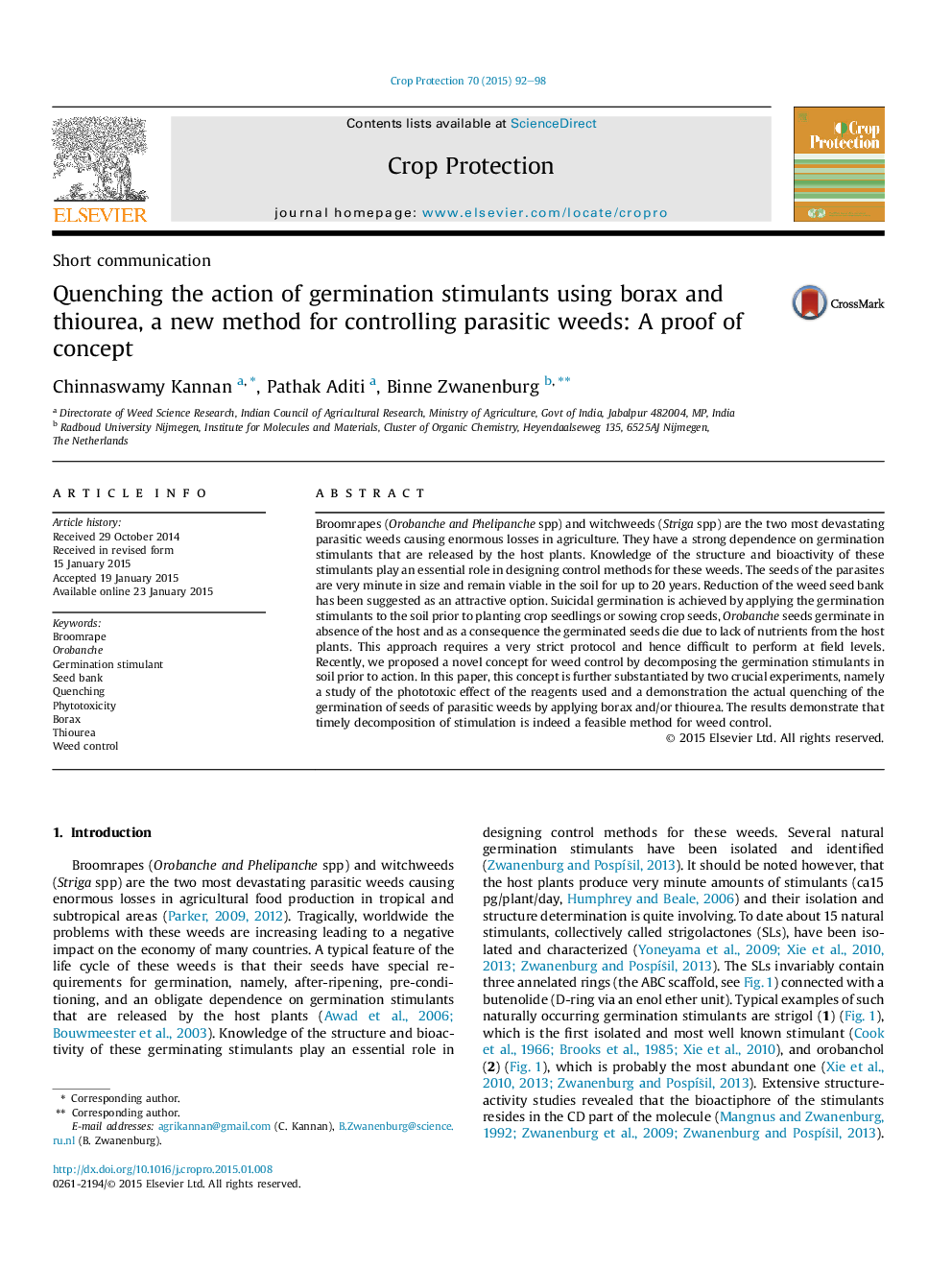| Article ID | Journal | Published Year | Pages | File Type |
|---|---|---|---|---|
| 4505793 | Crop Protection | 2015 | 7 Pages |
•Effective deactivation of germination stimulants by borax and thiourea without causing a phytotoxic effect.•Decomposition of germination stimulants prior to action is a compelling concept for parasitic weed control.•Borax and thiourea are effective quenching agents of germination stimulants.•New control method for parasitic weeds.
Broomrapes (Orobanche and Phelipanche spp) and witchweeds (Striga spp) are the two most devastating parasitic weeds causing enormous losses in agriculture. They have a strong dependence on germination stimulants that are released by the host plants. Knowledge of the structure and bioactivity of these stimulants play an essential role in designing control methods for these weeds. The seeds of the parasites are very minute in size and remain viable in the soil for up to 20 years. Reduction of the weed seed bank has been suggested as an attractive option. Suicidal germination is achieved by applying the germination stimulants to the soil prior to planting crop seedlings or sowing crop seeds, Orobanche seeds germinate in absence of the host and as a consequence the germinated seeds die due to lack of nutrients from the host plants. This approach requires a very strict protocol and hence difficult to perform at field levels. Recently, we proposed a novel concept for weed control by decomposing the germination stimulants in soil prior to action. In this paper, this concept is further substantiated by two crucial experiments, namely a study of the phototoxic effect of the reagents used and a demonstration the actual quenching of the germination of seeds of parasitic weeds by applying borax and/or thiourea. The results demonstrate that timely decomposition of stimulation is indeed a feasible method for weed control.
